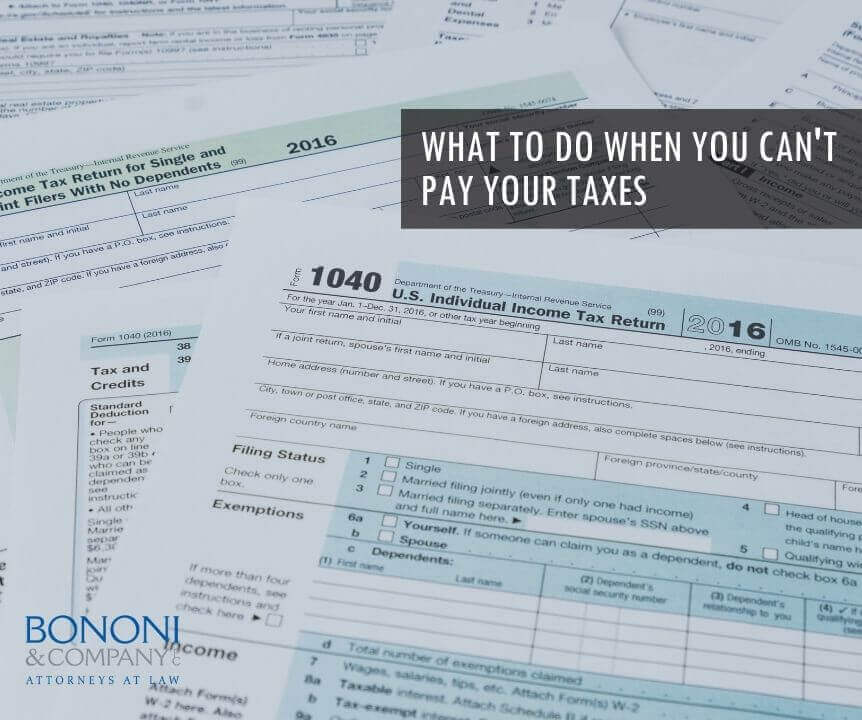
According to US News, last year, an estimated 7.9 million taxpayers owed money on their taxes.
Wondering what to do if you can’t pay your taxes? Through my experience, I have realized this is a problem many people want to ignore. And a lot do.
The problem here is that debt builds. If you owe the IRS money, it will double every three years. For example, if you owe $1,000 and three years goes by, it will become $2,000, then another three years go by as it becomes $4,000, then it becomes $8,000, which will then become $16,000. The interest rates and penalties for not paying are tremendous.
The first thing that you should do is get those taxes filed. Even if they aren’t being paid, you should still file your return by the deadline.
The second thing that you should do is set up an installment agreement. If you think that you will be able to catch up on paying your taxes somewhat soon, this is the most logical option for you. To set up an agreement, go to irs.gov and fill out an online payment agreement application (after you file your taxes).
Mailing your taxes along with Form 9465 is an alternative option. Form 9465 lets the government know that you are interested in setting up a monthly payment plan. The IRS will typically allot a period of 72 months for you to pay your bill. The caveat to this is that you must owe $50,000 or less in combined tax, penalties and interest.
If you can’t pay that installment agreement, then go talk to them and tell them what you can pay. There’s always the alternative of requesting an offer in compromise. Even if you only have $2,000 for a $4,000 bill, they will take that.
According to the IRS website: “An offer in compromise allows you to settle your tax debt for less than the full amount you owe. It may be a legitimate option if you can’t pay your full tax liability, or doing so creates a financial hardship. We consider your unique set of facts and circumstances:
- Ability to pay;
- Income;
- Expenses; and
- Asset equity.
We generally approve an offer in compromise when the amount offered represents the most we can expect to collect within a reasonable period of time. Explore all other payment options before submitting an offer in compromise.”
You have to fill out the offer in compromise form, and everything else. But if you stick your head in the sand and forget about it, the amount will continue to grow especially if you don’t file your taxes as the statute of limitations starts from the date of filing. That statute is usually 10 years long and is extended by offers in compromises, bankruptcies and other items.
Everyone’s tax situation is different. There is no one-size-fits-all strategy. If you need help, either find a tax attorney or CPA to assist you through this process.
Whatever you do, don’t ignore the problem.
